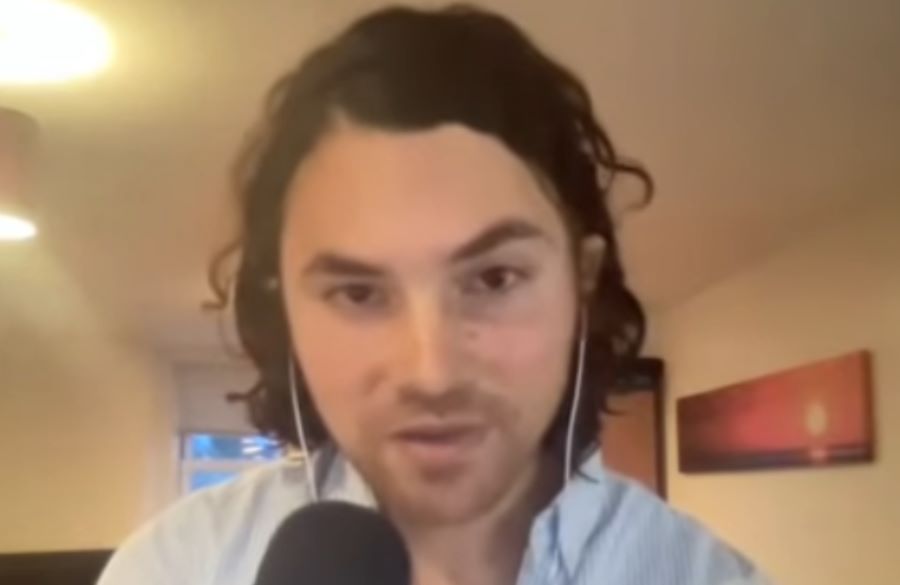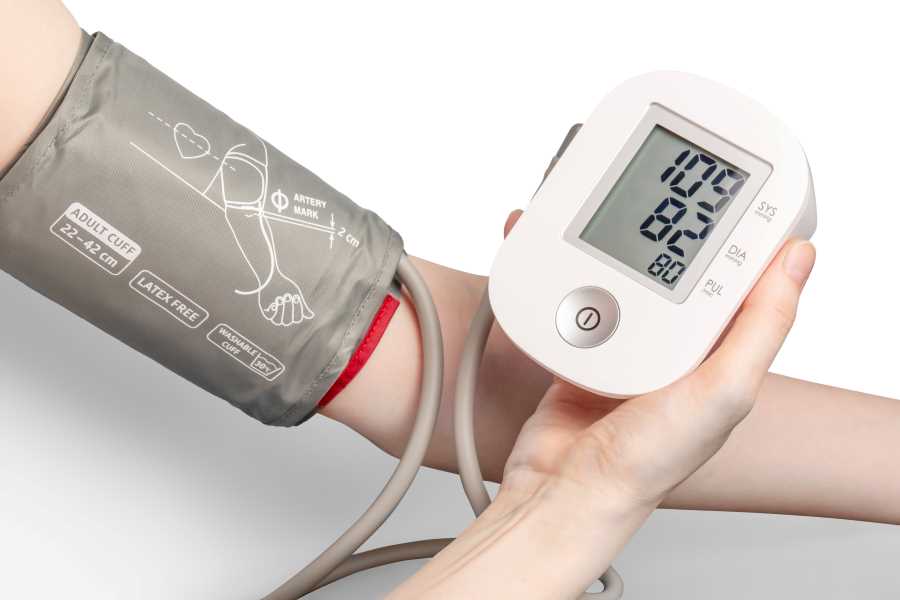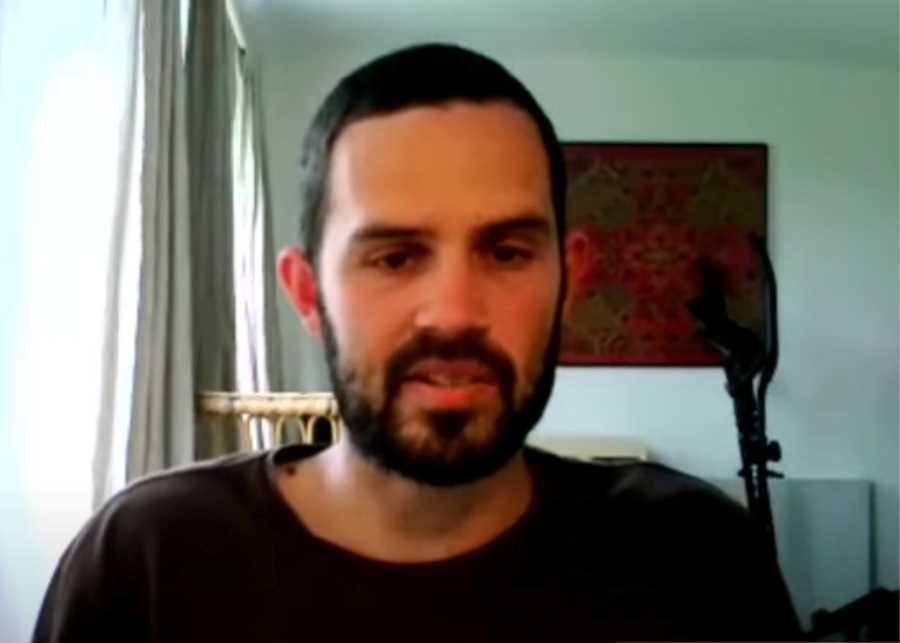After an initial misdiagnosis, at the age of 27, Andrew Scarborough was told that he had the most serious form of brain cancer known as grade 3 anaplastic astrocytoma.
Andrew was given the ‘gold standard’ treatment including surgery, chemotherapy and radiation therapy. But after finding out that chemotherapy would do little to help with his type of cancer, he abandoned it and went on his own path.
Researching, asking questions and being willing to use himself as a human guinea pig, he managed to figure out a strict version of the carnivore diet that helps put his cancer in complete remission.
Nine years later, he’s not only beaten cancer but has gone on to live almost a normal life while every patient who received his initial treatment had passed away.
But it was not a miracle. His bravery, determination, and extensive research are the main reasons why he is still alive today.
Let’s look at the extraordinary and inspiring story of how a young man cured his aggressive brain cancer by forging his own path in this post.
Andrew Scarborough’s life before cancer diagnosis
In 2013, at the age of 27, Andrew Scarborough was studying a master degree in nutritional therapy at the University of Westminster in London.
He was health-conscious and at the time was following a diet that he thought was ideal: low fat and high in good carbs. He was also physically active and had even worked for a few years as a personal trainer.
However, he was getting partial seizures (which only affect a small area of the brain) even though he thought he was very fit and healthy.
He initially thought this was due to stress because of his study and a busy lifestyle in London.
When it got worse, he went to see a GP but was told that he was probably just stressed and having migraines, nothing to worry about.
But his migraines got worse over time and he suffered a partial seizure in February 2013 where he felt dizzy and confused, had a metallic taste in his mouth, and lost his speech. He didn’t know it was a partial seizure at the time and thought that it was just stress or he was having a flu.
He continued to have horrific migraines until he suffered from a life-threatening grand mal seizure a couple of months later.
Andrew Scarborough’s cancer diagnosis
On 13th April 2013, Andrew was traveling on a train in London after a heavy workout at the gym when he suddenly felt like he was hit very hard on the side of his head with a hammer. He felt a metallic taste, couldn’t feel parts of his body, had violent convulsions and subsequently fell unconscious.
He had had a grand mal seizure and suffered from a brain hemorrhage. When he came around, he was on the other side of the train and had bitten his tongue badly, dislocated his shoulder and had other superficial injuries.
Andrew was rushed to a hospital and got a CT scan.
Due to the massive amount of blood on the scans, he was misdiagnosed multiple times. He was initially told that he had an arteriovenous malformation which was then changed to a cavernous hemangioma.
He was repeatedly told that it was benign and there was nothing to worry about. He could have surgery although it would be unnecessary. However, he would have to depend on medication his entire life to control seizures.
Despite the assurances, Andrew knew that something was not right because he continued to have very bad seizures and would become unconscious every single time and had injuries as a result.
He had surgery in May that year for the ‘cavernous hemangioma’. However, six weeks later he received an apologetic call from his neurosurgeon and was told that there had been a mistake and that he actually had an incurable malignant brain tumor.
It turned out he actually had a golf-ball-sized tumor which was identified as an aggressive grade 3 anaplastic astrocytoma.
Grade 3 and 4 tumors would usually spread to healthy brain tissues eventually and, even if they are taken out completely, they would normally come back.
Most of the tumor was removed during the surgery apart from the bit that had spread to the motor cortex of Andrew’s brain. An attempt to remove it could cause paralysis and possibly death.
In addition, his tumor was very vascular and overall this indicated a poor prognosis.
The cancer treatment that Andrew Scarborough was prescribed
Andrew Scarborough was given the “gold standard” treatment for brain cancer: surgery to remove the brain tumor, followed by chemotherapy and radiation therapy to kill the remaining cancer cells.
He was told that he would need to be on medication to control epilepsy indefinitely.
He went ahead with the chemotherapy and radiation therapy treatment.
However, when he learned that his tumor would not be chemosensitive and he didn’t have a number of tumor suppressor genes, he questioned his oncologist about the effectiveness of his treatment plan.
The oncologist confirmed Andrew’s lack of the gene mutations that make his tumor chemosensitive. He also acknowledged that the Temozolomide (chemotherapy) Andrew was on can actually cause further mutations.
In fact, Andrew found out that his cancer was making a comeback with the chemotherapy treatment because the scans were showing more enhancements.
He also suffered a lot of side effects with the chemotherapy including short-term memory, nausea, fatigue, and migraines. He was so weak that he couldn’t leave his bed for months.
Andrew decided to stop chemotherapy after six weeks.
Andrew Scarborough’s search for a cancer cure through diet
Andrew Scarborough continued with his study and read extensively scientific literature on cancer metabolism, nutrition, and dietetics.
He had learned about the ketogenic diet and its ability to control epilepsy and manage cancers in his master study.
He further learned that brain cancers where the tumors glow on scans (which suggest they might be more metabolically active) are potentially more responsive to the ketogenic diet.
He also looked into successful animal studies where pets with cancer, especially dogs, were cured on the ketogenic diet in combination with hyperbaric oxygen therapy (breathing pure oxygen in a pressurized environment).
Andrew contacted long-term cancer survivors as well as two pioneer researchers in metabolic-based therapy, Dr. Dominic D’agastiono and Dr. Thomas Seyfried, Ph.D., and received support from both men.
Dr. Dominic D’agastiono has done extensive research on metabolic-based therapies, including ketogenic diets, ketone supplements and metabolic-based drugs.
Dr. Thomas Seyfried, Ph.D. is involved in research on using metabolic therapy to manage chronic diseases such as epilepsy, neurodegenerative lipid storage diseases, and cancer. He also published a groundbreaking treatise challenging the theory that cancer is a genetic disease and presented compelling information showing that cancer can be best defined as a metabolic disease. Dr. Seyfried’s research extends further the work of a Nobel laureate, Dr. Otto Warburg, done in the 1920s.
Cancer, above all other diseases, has countless secondary causes. But, even for cancer, there is only one prime cause. Summarized in a few words, the prime cause of cancer is the replacement of the respiration of oxygen in normal body cells by a fermentation of sugar. All normal body cells meet their energy needs by respiration of oxygen, whereas cancer cells meet their energy needs in great part by fermentation.
Otto Warburg, 1966, “The Prime Cause and Prevention of Cancer” delivered at Annual Meeting of Nobelists at Lindau, Germany
Andrew started with the traditional ketogenic diet which has been widely used to control seizures in children with epilepsy successfully. Because he suffered from seizures and the seizure medications he took had many side effects so the ketogenic diet seemed to be the way to go.
However, although his blood glucose and blood ketone levels were great, he still had horrible migraines, seizures, loss of balance, severe fatigue, nauseousness, visual disturbance, altered mood states, facial paresthesia, hemifacial spasms and poor cognitive functioning.
He suffered from temporal arteritis (inflammation of the blood vessels supplying blood from the heart to the scalp) which his doctor said usually only happened in really old men.
Temporal arteritis affected his eyesight badly and Andrew was prescribed prednisolone and told to take it or he would lose his vision.
Because he kept a meticulous food diary, Andrew was able to figure out that certain standard foods in the traditional ketogenic diet were triggering his migraines and other symptoms.
He found out that he was sensitive to dairy.
He also learned that people with his type of brain injury can be more sensitive to salicylate which is high in some standard ketogenic foods like coconuts and avocados.
He also looked into the omega 3 to omega 6 ratio in his diet. He figured out that nuts were probably not ideal because they are high in omega 6 and the omega 3 in nuts are poorly converted into DHA which is what his brain needed.
So Andrew decided to cut out nuts, dairy, and high salicylate foods such as avocado and coconut oil. He improved his micronutrients by adding organ meat to his diet.
His migraines disappeared instantly and he had a lot more energy.
His seizure improved and soon he was able to gradually lower the epilepsy medications that he was on (he was on the highest dose of some epilepsy medications before that).
After looking into ancestral diets, Andrew further cut out all fruits and vegetables and added more organ meats and insects into his diet and found that he had an instant beneficial response.
Andrew was able to get off all epilepsy medications and achieve complete cancer remission.
According to Andrew, all patients who received his initial treatment at the Royal Marsden hospital had passed away within a relatively short period of time, even people with less aggressive types of cancer than him.
Seeing what he’s able to achieve with the ketogenic diet, Andrew’s oncologist even offered him employment to help other cancer patients.
Andrew Scarborough’s diet that put his cancer in remision
Andrew Scarborough said he ate the following foods in various interviews given:
- Oily fish (sardines, mackerel). He eat the whole fish including the skin, bones and eyes
- Sweetbreads (organ meat from the thymus gland and pancreas of an animal)
- Caviar
- Lamb brain
- Lamb heart
- Omega 3 enriched eggs
- Grass-fed lamb heart
- Liver
- Kidney
- Ghee
- Insects such as beetles, waxworms, silkworm pupae, crickets and locusts.
He also mentioned in an interview that he bought a whole lamb and ate everything.
Andrew adds insects to his diet because he believes they help to get all micronutrients he needs despite cutting out all plant foods. He also thinks that ‘insects can be very beneficial for the gut microbiome as the animal fiber is an excellent probiotic. Many insects have antimicrobial and antifungal benefits.’
He gets insects from pet shops and also breeds them himself. He currently breeds wax worms which he can manipulate their feed to achieve the macronutrient and micronutrient profiles that he’s after.
Andrew eats all food almost raw or just lightly cooked to get the most benefits.
He typically eats twice a day.
He also incorporates intermittent fasting and fasts between 16-18 hours a day.
When he fasts, Andrew takes magnesium chloride which helps maintain ionic homeostasis in his brain and avoid having seizures.
His cancer is in complete remission and he is currently off all epilepsy medications.
All of his blood tests show that he is actually healthier now than before he had cancer and he does not have any nutrition deficiencies.
In interviews given, Andrew mentioned taking various supplements including magnesium chloride, curcumin, potassium citrate, boswellic acids, ketone ester salts, CBD oil, vitamins D3 and K2, and melatonin at different times. However, I’m not sure what exactly he’s still taking at the moment.
In an interview with the ICMNI in 2016, he said his macronutrient ratio is 85% fat and 15% protein (in terms of calories) and almost zero carbs. He typically eats 50-60 grams of protein and 190 grams of fat a day and he carefully measures his food to achieve the macro and micronutrient profile he wants.
The reason he restricts protein is cancer cells can use glutamine (an abundant amino acid in plasma) to increase proliferation and survival under metabolic stress conditions. If he didn’t have cancer, he would have eaten more protein because it gives him more energy.
In an interview with Dr. Shawn Baker in February 2021, he said his macronutrient ratio initially was 4:1 and now it is 3:1 (this means around 75% of calories from fat and 25% of calories from protein).
He plans to stick to the diet long term because in human case studies that he had seen people who achieved remission on the ketogenic diet had cancer recurrence as soon as they stopped the diet.
The diet that Andrew Scarborough was able to figure out to starve off his cancer is essentially the same as the Paleolithic Ketogenic Diet that the International Center for Medical Nutritional Intervention (ICMNI) in Hungary used to cure many chronic conditions including type1 diabetes, type 2 diabetes, brain cancer, rectal cancer, lung cancer, epilepsy, and Crohn’s disease.
It is truly remarkable that Andrew Scarborough has been able to achieve what a team of doctors and researchers did with a large clinical database.
Post cancer, Andrew Scarborough has been busy with furthering his study and plans to pursue a PhD in the future when the Covid situation is more under control and he’s able to travel.
He is passionate about studying brain cancer biology and helping other brain cancer patients.
In addition to the references listed below, you can learn more about Andrew’s story from:
- His blog: My Brain Cancer Story
- His Youtube channel: Andrew Scarborough
- His podcast series: The Human Guinea Pig Project.
References
Andrew Scarborough tells his story on Brain Tumour Research
MeatRx Carnivore Community Meeting with Andrew Scarborough
“Every patient that received my initial treatment passed away” Interview with Andrew Scarborough
Ancestral Ketogenic Diets and Brain Cancer – The Scarborough Protocol
Ketogenic diet’s reputed anticancer credentials put to test – News Scientist
If you find this post helpful, please consider sharing this post and my site with your family, friends, and followers. That would be much appreciated. Please also check out my library of articles on the carnivore diet here which is updated regularly.
Disclaimer: The information in this post is for reference purposes only and not intended to constitute or replace professional medical advice. Please consult a qualified medical professional before making any changes to your diet or lifestyle.
Photo credit: MeatRx





